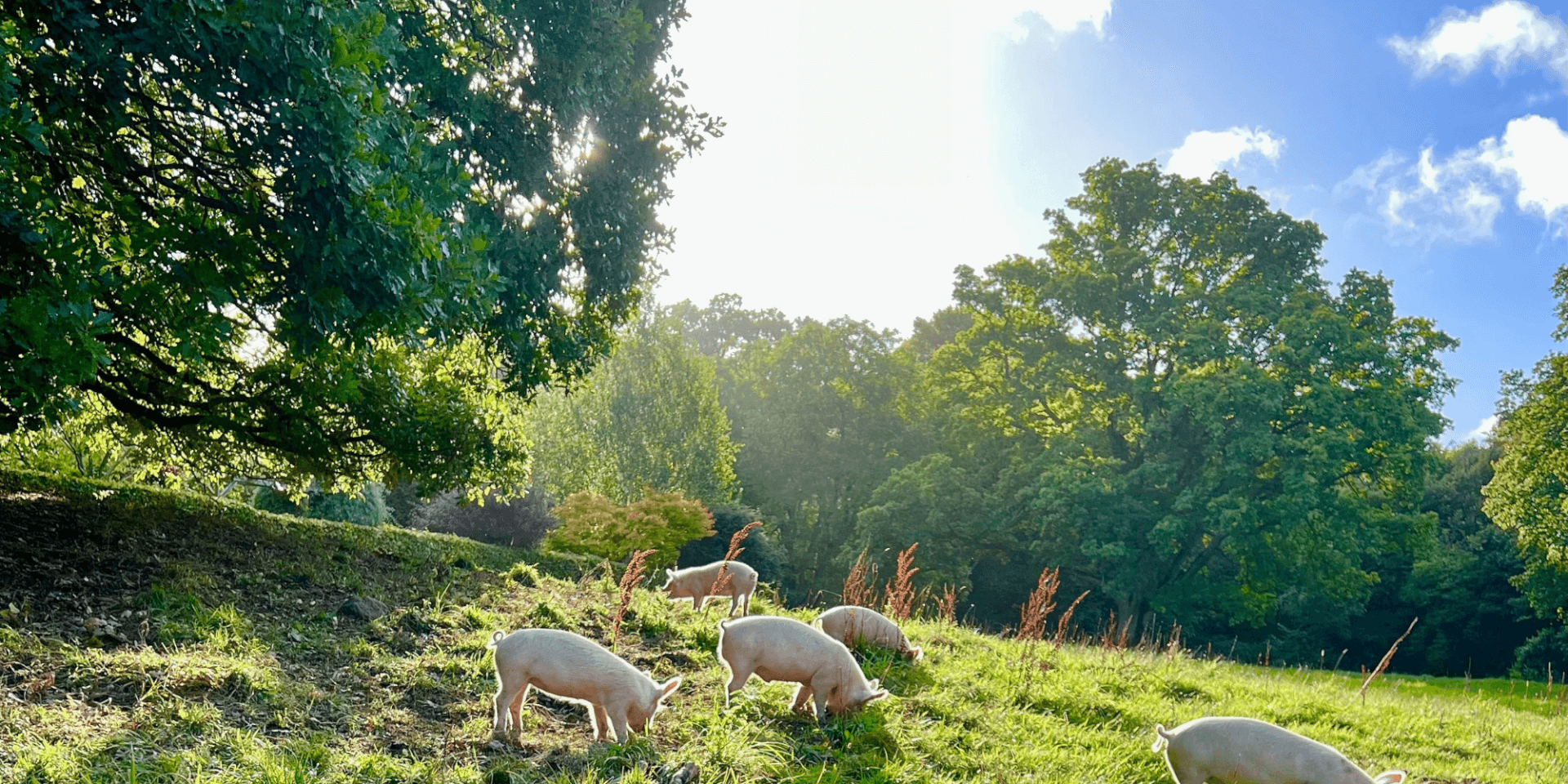
For researcher Baojing Gu, scientific revelation started with a pig farm.
Fresh out of his ecology postdoc at Zhejiang University, around 2012, Gu was shopping in the suburbs of Hangzhou when the breeze carried in the acrid, unmistakable scent of ammonia, drifting over from a nearby farm.
He immediately started wondering how much of an effect ammonia has on the environment and what would happen if we started paying more attention to it.
The short answer: a lot. Inspired by that smell, Gu’s inquiry into the environmental impact of nitrogen emissions, including ammonia, has reshaped conventional thinking on air pollution and offered a more effective way to take on a problem that claims millions of lives every year.
Ammonia, which is mostly produced by agriculture, is one of the nitrogen compounds that contributes to deadly PM2.5 pollution, alongside nitric oxide and nitrogen dioxide (collectively referred to as NOx) and sulfur dioxide.
In many countries, regulators have focused on controlling sulfur dioxide and NOx, which are primarily produced by industry or vehicles. All three are heavier than ammonia and make up a larger share of atmospheric pollutants.
Because ammonia is light and, in terms of mass, is a relatively small part of overall air pollution, it has been easy to ignore, Gu notes. But by looking at how ammonia interacts with other chemicals, his team’s research found that it has an outsized effect on overall air pollution – and that targeting it would be a far more cost-effective way to dramatically reduce air pollution, compared to the other major compounds.
Globally, ammonia contributes about 40% to PM2.5 pollution – and even more in Europe and North America, where decades of regulations have successfully reduced sulfur dioxide and NOx emissions.
“Currently, we are at a crossroads,” Gu says. “We need to start working on ammonia – that’s a very important message to deliver to the whole scientific community and policy-makers.”
Gu’s research, which won the 2023 Frontiers Planet Prize, has clear practical implications. He has made a point of offering policy suggestions based on the data, including proposing a “nitrogen credit system” to fund greener farming techniques and reward farmers who make the change. Australia is currently using a similar nitrogen credit system to reduce fertilizer runoff that pollutes the ocean and threatens the Great Barrier Reef.
Subsidies to help farmers replace old fertilizers with modern ones is another, relatively easy step, Gu says. Not only do new fertilizers produce fewer nitrogen emissions, but they can also improve crop yield – a win for farmers and the environment.
More complicated, though, is adapting farming techniques to produce fewer emissions, he notes. There are more than 200 million smallholder farms in China, and farmers often have little time or resources to try out new techniques. Some emissions-reducing policies may also mean reduced yields, cutting into meagre profits.
“Implementation costs are paid by farmers, but the whole society benefits,” Gu says. “Why, as a farmer, would I do all of this environment-saving work, which costs money, and you get the profit and better health?” he asks. That’s why he suggests governments need to step in and offer incentives like the nitrogen credit system to help farmers keep working while reducing emissions.

Global Knowledge Dialogue: Asia and the Pacific
The Global Knowledge Dialogue (GKD) Asia and the Pacific will be held on 6 October 2023 at the Kuala Lumpur Convention Centre
In addition to his research on emissions, Gu’s ongoing work includes a long-term study of agriculture in China, drawing data from Zhejiang University’s bi-annual surveys of rural households. The work also often takes him out into the field to visit farms, watching as agricultural practices evolve, livelihoods adapt and the land and water change – something that is happening even faster now.
“When you are solving scientific questions, you can contribute to a better world,” Gu argues. But doing that has to start with listening to the people affected by problems – and who might be affected by the proposed solutions.
“We’re not policy-makers,” he says. “We really don’t want to say, ‘Listen to me, I’m right.’ We are trying to understand what their problems are, and what they want help with, and how we can provide science-based solutions which they can use. We can work together.”
Gu grew up watching his father farm wheat and corn on the North China Plain, and he goes back home often – always paying attention to what has changed in the fields, and among neighbours in the village. “If I can’t convince my father to use the way I’ve proposed, I’ve failed,” he says, laughing.
Professor Gu will be speaking about his work as part of the “Winners Ignite Science” talk at the ISC Global Knowledge Dialogue in Kuala Lumpur, Malaysia on Oct. 6, 2023.
For the second year, the International Science Council proudly partners with the Frontiers Planet Prize ito recognize and reward exceptional scientists in the field of sustainability.
Frontiers Research Foundation has launched the Planet Prize to recognize and reward exceptional scientists. In this second edition, three prizes totaling CHF 3 million (~USD $3.2m) will be awarded to the world’s most innovative sustainability scientists capable of providing globally scalable solutions that protect and restore planetary health.
Join us on 20 September for an online Information Session to learn more about the overall mission and objectives of the Planet Prize, the eligibility criteria for scientists, the mechanics of the Prize and the role of the ISC in engaging its Members around this scientific competition.
Learn more details and register here: Frontiers Planet Prize – Information Session – International Science Council.
Disclaimer
The information, opinions and recommendations presented in this article are those of the individual contributors, and do not necessarily reflect the values and beliefs of the International Science Council.
Image by Sarah Penney on Unsplash.